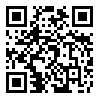Volume 3, Issue 1 (3-2020)
Iranian Journal of Educational Sociology 2020, 3(1): 106-118 |
Back to browse issues page
Download citation:
BibTeX | RIS | EndNote | Medlars | ProCite | Reference Manager | RefWorks
Send citation to:



BibTeX | RIS | EndNote | Medlars | ProCite | Reference Manager | RefWorks
Send citation to:
Falahi Z, Sadeghi Afjeh Z, Kochak Entezar R. (2020). The Model of Social Trust based on Social Intelligence, Social Identity and Social Isolation based on the Moderating Role of Gender and Family Economic Status on Senior High School Students in Tehran. Iranian Journal of Educational Sociology. 3(1), 106-118. doi:10.52547/ijes.3.1.106
URL: http://iase-idje.ir/article-1-772-en.html
URL: http://iase-idje.ir/article-1-772-en.html
1- PhD Student in Educational Psychology, Central Tehran Branch, Islamic Azad University, Tehran, Iran
2- Assistant Professor in Department of Psychology, Varamin Branch, Islamic Azad University, Varamin, Iran
3- Assistant Professor in Department of Psychology, Central Tehran Branch, Islamic Azad University, Tehran, Iran
2- Assistant Professor in Department of Psychology, Varamin Branch, Islamic Azad University, Varamin, Iran
3- Assistant Professor in Department of Psychology, Central Tehran Branch, Islamic Azad University, Tehran, Iran
Abstract: (1668 Views)
Purpose: The purpose of this study was to model social trust based on social intelligence, social identity, and social isolation based on the moderating role of gender and family economic status on secondary school students in Tehran.
Methodology: The research method was descriptive correlation based on modeling and structural equations. The statistical population consisted of all high school students in Tehran in the year 2019, from which 495 students were selected by multistage cluster sampling method. Data collection was done based on Social Trust Questionnaire (Dr Safari nia, Sharif 1389, base on Johnson's theory, 1993), Social Intelligence Questionnaire (Ang Ton Teeth, 2008), Social Identity Questionnaire (Dr Safari nia, Roshan 1390, base on Jenkins's theory, 2000) and Social Isolation Questionnaire (Modaresi Yazdi, 2014). Data analysis was done by SPSS19 and PLS-SEM software in two descriptive and inferential sections. Structural equation modeling was used to test the hypotheses.
Findings: The results showed that based on the identified dimensions and components, the research model had a good fit. The results also showed that the results of social isolation, social intelligence and social identity had an impact on students' social trust. It should be noted that the social isolation variable has a negative coefficient and social intelligence and social identity have a positive path coefficient. It is therefore concluded that gender has a moderating effect on the coefficients of variable social identity on social trust. The coefficient indicates that social identity in girls has a greater impact on social trust than boys. It should be noted that gender has no moderating role in the relationship between social intelligence and social isolation with social trust. The results also showed that the relationship between social identity, social intelligence and social isolation with social trust in the high and low economic status group was different.
Conclusion: Therefore, it is concluded that the economic situation has a moderating effect on the coefficients of the variables of social identity, social intelligence and social isolation on social trust.
Methodology: The research method was descriptive correlation based on modeling and structural equations. The statistical population consisted of all high school students in Tehran in the year 2019, from which 495 students were selected by multistage cluster sampling method. Data collection was done based on Social Trust Questionnaire (Dr Safari nia, Sharif 1389, base on Johnson's theory, 1993), Social Intelligence Questionnaire (Ang Ton Teeth, 2008), Social Identity Questionnaire (Dr Safari nia, Roshan 1390, base on Jenkins's theory, 2000) and Social Isolation Questionnaire (Modaresi Yazdi, 2014). Data analysis was done by SPSS19 and PLS-SEM software in two descriptive and inferential sections. Structural equation modeling was used to test the hypotheses.
Findings: The results showed that based on the identified dimensions and components, the research model had a good fit. The results also showed that the results of social isolation, social intelligence and social identity had an impact on students' social trust. It should be noted that the social isolation variable has a negative coefficient and social intelligence and social identity have a positive path coefficient. It is therefore concluded that gender has a moderating effect on the coefficients of variable social identity on social trust. The coefficient indicates that social identity in girls has a greater impact on social trust than boys. It should be noted that gender has no moderating role in the relationship between social intelligence and social isolation with social trust. The results also showed that the relationship between social identity, social intelligence and social isolation with social trust in the high and low economic status group was different.
Conclusion: Therefore, it is concluded that the economic situation has a moderating effect on the coefficients of the variables of social identity, social intelligence and social isolation on social trust.
Type of Study: Research Article |
Subject:
Special
Received: 2020/07/15 | Accepted: 2020/03/21 | Published: 2020/03/21
Received: 2020/07/15 | Accepted: 2020/03/21 | Published: 2020/03/21
Send email to the article author
| Rights and permissions | |
 |
This work is licensed under a Creative Commons Attribution-NonCommercial 4.0 International License. |








.jpg)
